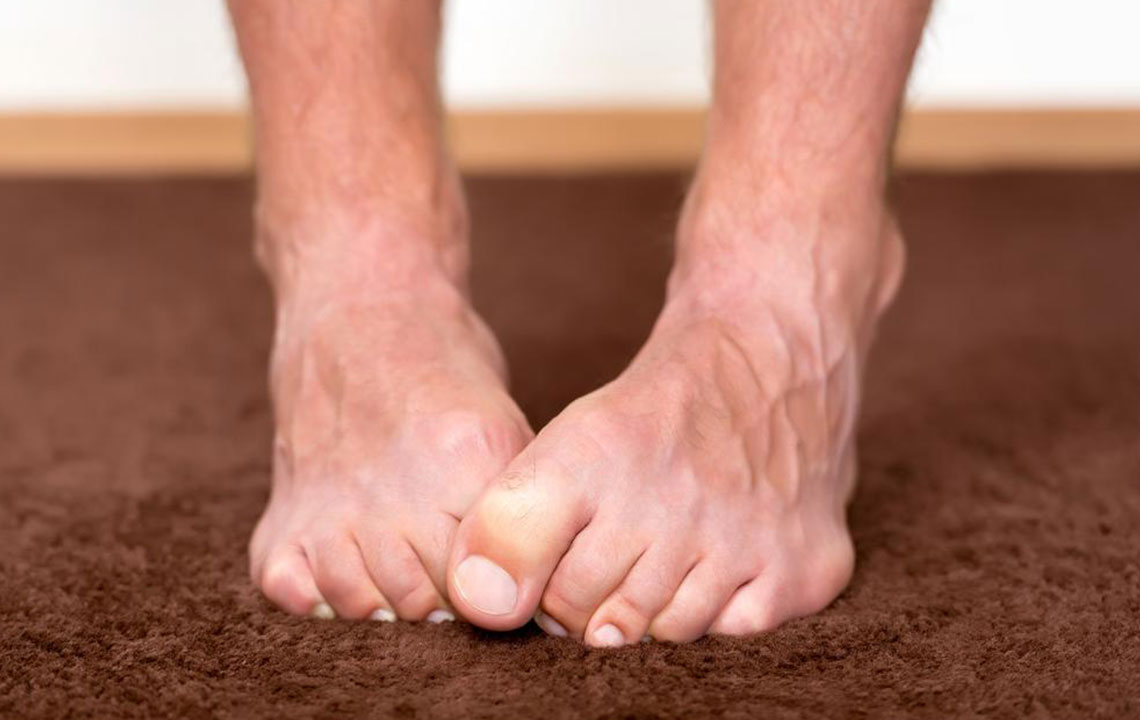Understanding Foot Nerve Pain: Causes, Symptoms, and Remedies
Learn about foot nerve pain, including its causes, symptoms, and treatment options. Discover how nerve damage affects sensation, movement, and organ regulation. Practical tips for prevention and management are included to help maintain healthy feet and nerves.
Sponsored

The nervous system governs body movement and sensation, linking the brain and spinal cord to various body parts like the feet, hands, and face. It transmits signals to the brain that allow us to sense and respond to stimuli.
Peripheral neuropathy involves nerve damage that disrupts proper communication between nerves and the brain. Causes include infections, injuries, and hereditary conditions.
This disorder impacts sensory, motor, and autonomic nerves. Sensory nerves connect to the skin, while autonomic nerves control internal organs, and motor nerves lead to muscles. Damage impairs these functions.
Signs of Foot Nerve Pain:
Burning or tingling sensations in the feet
Numbness or loss of sensation
Thinning or dry skin
Digestive issues like constipation or diarrhea
Low blood pressure
Excessive sweating in feet
Sharp or shooting foot pains
Feeling shocks or electrical sensations
Heavy, collapsing legs causing difficulty standing
Causes of Foot Nerve Pain:
Several factors contribute to nerve damage in the feet. Family history can increase risk. Key causes include chronic illnesses like diabetes, obesity, hypertension, vitamin deficiencies, kidney failure, thyroid issues, and prolonged inflammation. Injuries, repetitive pressure, alcohol abuse, infections, and certain medications also play roles.
Diabetes, especially when uncontrolled, damages nerves, leading to numbness and pain. Obesity and high blood pressure are risk factors too. Deficiencies in vital nutrients and toxin buildup from kidney failure damage nerves. Hormonal imbalances and long-term inflammation can obstruct nerve functions.
Physical injuries, prolonged pressure, and alcohol consumption weaken nerves. Viral infections, bacteria, and certain drugs used for high blood pressure, cancer, or seizures also contribute.
Diagnosing Nerve Damage in the Feet:
If you notice symptoms, consult a healthcare professional for assessments. Tests include physical exams, blood tests for glucose and thyroid function, imaging like CT scans for tumors, nerve conduction studies, electromyography, and nerve biopsies to identify nerve issues.
Effective Treatments for Foot Nerve Pain:
Addressing the root cause is vital. Controlling blood sugar, correcting nutrient deficiencies, and managing underlying health issues can reduce symptoms. Medications like anti-inflammatory drugs, antiepileptics, and pain relievers are prescribed carefully to minimize side effects.
Protective measures include wearing comfortable footwear, avoiding extreme temperatures, and maintaining good foot hygiene. Regular movement and avoiding prolonged inactivity help prevent nerve deterioration.
Adopting a healthy lifestyle—balanced diet, regular exercise, quitting smoking, and limiting alcohol—supports nerve health. Proper foot care, including washing, moisturizing, and inspecting for injuries, is essential. Seek medical advice for persistent or severe foot pain.






